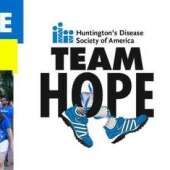Healthy Competition

Healthcare is big business in Cape Girardeau. The two major hospitals, SoutheastHEALTH and Saint Francis Medical Center, represent the two largest employers in Cape Girardeau County by far. Combined, they employ almost four and a half times the number of employees as Procter & Gamble, the third largest employer. According to the Missouri Hospital Association, total payroll and benefits at Saint Francis and Southeast exceed $336 million. That’s more than a third of a billion dollars, annually, injected into the local economy just through personnel.
A look at the county history books would put one or both hospitals at the top for biggest construction projects, most use of hotel rooms by clients and vendors, most expensive technology investments, and the list goes on.
This is big business – extremely big business – led by two individuals who are fiercely competitive, which is what makes talks between the two hospitals about collaboration so remarkable. As of deadline, B Magazine had uncovered a possible, major development regarding a jointly-owned new line of business, which has been presented to both hospital boards. In response, the leadership of both hospitals briefed the magazine, but asked for details to be held until final approval, as the project was not yet guaranteed to proceed.
The potential, multi-million dollar project is unique on a number of levels. But it couldn’t have come this far without two confident CEOs, both relatively new to the area, who identified a community health need that is only becoming worse (nationally, as well as locally), and cast a vision that the best, highest quality, most affordable way to address the problem is through collaboration. The boards of directors for both hospitals, including their chairmen Frank Kinder at Southeast (and Bob Neff, who preceded him when the plan began) and Donald Kaverman at Saint Francis, also deserve credit for championing the benefits of this revolutionary initiative for the community – and between the two health systems.
Ken Bateman, who most recently was president and CEO of Somerset Medical Center in New Jersey for 10 years, was named President and CEO of SoutheastHEALTH in 2014 after a national search. At the time, the hospital system was under financial stress, in part caused by several years of under-billing due to a computer integration failure. Bateman, who became the fourth CEO at Southeast in six years, brought a strong history of financial expertise, having also served as chief financial officer for several east coast health systems and before that, working with one of the world’s largest auditing firms, KPMG, as an auditing manager based in New York City. He holds degree in accounting and a master’s in healthcare administration.
John Thompson, Southeast HEALTH board chairman at the time, recounted how Bateman separated himself from the other final candidates for hospital CEO, stating, “Ken told the board, ‘You do not have a facility, quality or outcome problem, you have a financial problem. I can fix that.’ That’s when we knew he was the one. Looking back, I told fellow board member Bob Neff, ‘This is the right person at the right time, and we found him.’”
Bateman quickly went to work, taking on the additional responsibilities of chief financial officer only a few months after arriving, and holding “townhall meetings” with every employee in the company.
In an interview with the publisher of the Southeast Missourian at a Cape Girardeau Chamber First Friday Coffee, Bateman explained, “When I first came to SE Health, there was a lot of turbulence, a lot of turmoil. As a matter of fact, there was a consultant in that had recommended that the organization let 200 people go in order to get back to a healthy bottom line. And my first board meeting I had to tell my board that I’m going to go against our consultant’s recommendations, because I said if you let 200 people go, this organization won’t survive. The people didn’t put the hospital in that situation; a billing system put them in that situation. And it was going to be the people that get us back out of that situation.”
Thompson pointed to Bateman’s communication skills as being vital to the quick turnaround.
“His transparency with his team was key,” Thompson said. “Ken told them, ‘We have a problem, and I need your help.’ They responded.”
In less than 18 months, Bateman and hospital staff turned operations from a $63 million loss to profitability, without employee layoffs. By summer of 2017, the hospital, with repaired bond ratings and new hires, was aggressively looking at expansion. Among the plans: a new project, which gained the attention of Saint Francis CEO Maryann Reese.
Maryann Reese’s climb to become president and CEO at Saint Francis Health System could not have been more different. A native of St. Louis, she was recruited by Saint Francis from St. Elizabeth Hospital in Belleville, Illinois, where she had been president and CEO for five years. Before that, she led hospitals as chief operating officer and chief nursing officer in Montana and Idaho, and she holds degrees in nursing, a master’s in health administration and a doctorate in health administration and health care management.
Reese joined Saint Francis in 2015 as executive vice president and chief operating officer as part of the hospital board’s plan to elevate her to CEO upon the retirement of long-time president and CEO Steve Bjelich.
Bjelich, who served 18 years as top administrator for the Catholic hospital, retired in September 2017 after transforming Saint Francis from the much smaller, sleepier hospital in the market to a powerful, first-class, regional health system with a massive endowment and penchant for serious spending in regional marketing. Conducting a collaborative project with Southeast Health had been anathema to Bjelich, who honed his competitive streak as a nationally heralded long-distance runner in college.
Not all at Saint Francis was rosy for Reese, who likes to find think time above the clouds as a new pilot. With Missouri not approving Medicaid expansion, reimbursement rates for hospital services are under pressure. Rising healthcare costs are becoming an increasingly urgent problem, not just for patients, but for hospitals. And marketing dollars needed to be pared down.
Reese, who makes it a priority to interview every final candidate for a position at the main hospital, and her boards of directors are confronting the challenges head on.
In the same Chamber interview with the Southeast Missourian publisher, Reese was asked what keeps her up at night:
“I can tell you what does not keep me up at night,” she said. “What does not keep me up at night is my competition. I think that this community is big enough for two hospitals. We’re very lucky to have the quality of healthcare that we have in this community. I don’t know if people realize that if they’ve been here for a while or maybe if they’ve grown up here, but the quality of health care is second to none here. And I’m very proud of that, so I don’t wake up every morning and think about how can I beat SE Health.
“What does keep me up at night are the close to 3,000 employees that St. Francis employs”, said Resse. “It’s an awesome responsibility, and I mean that in the biggest sense of the word, to be the CEO, to be responsible for people’s jobs, for their livelihood, for their families.
“And it’s not just the main hospital, but all of the areas that we serve. What keeps me up is maintaining our position as an economic linchpin to this community. Our 3,000 employees, they buy cars. They pay tuition in schools. They attend churches. They buy groceries and eat out.
“Healthcare is changing. We’re getting paid less and less. It’s harder to run a health system today, and the most precious resource we have are the people that work for us. So we need to make sure we continue to keep them employed while offering our community the highest quality service, affordably.”
The beginning of a conversation
In the fall of 2017, Reese was invited to a local Rotary Club meeting where Bateman was the featured speaker, and he touched upon SoutheastHEALTH’s plans, which included a new service line targeting a regional market. Soon after, at a Missouri Hospital Association retreat, she approached him: “We’re thinking along the same lines. Why don’t we look at doing this together?”
Although Southeast was more than a year into the planning, Bateman immediately analyzed the financial benefits, which mitigated risk for both hospitals and elevated the upside while providing the area the best of all possible health services. He and his board invited Saint Francis into the deal.
Reese was the first to reach out; Bateman was the one in the power position, who welcomed Saint Francis in on equal terms. It took both as agents of change to get the deal to this point, tantalizingly close to full go.
The future
As of deadline for this magazine, the deal was still being refined and studied. The plan will also need certificate-of-need approval by the state.
Could these discussions be a harbinger of more collaboration in the future between the two Cape Girardeau-based health systems, potentially leading to more scale efficiencies in specific service lines, thus lowering costs to patients? Not necessarily, because aspects of the current project are unique, but an agreement certainly would make it more likely. Clearly, Reese and Bateman are talking openly with a great deal of trust. And they’re not afraid to think in new ways, previously unacceptable to hospital leadership, which seemed to view the world as a zero-sum game.
“We already collaborate together in many areas that people might not be aware,” Reese said. “I think about emergency preparedness. We also collaborate on simple things such as if we are out of a drug, which happens, sometimes we’ll call Southeast pharmacy and vice versa. So we do collaborate probably more than people would realize that we collaborate. But you know for the good of the community, we need to make sure that when it does make sense to collaborate together, that we’re talking about those things.
“There are certain things we can’t do because of antitrust and there’s laws that regulate what we can and can’t do,” Reese said. “And I think that having two hospitals in a community is a good thing, because when competition is good among hospitals, it keeps us on our toes. It helps us to improve quality and safety and patient care, which is really the business that we’re in. We want to provide the best care for our patients, so that we are the best health care institutions in our region, so that nobody thinks they have to go outside of our region to receive care.
“In the long term, if patients go elsewhere for health care, if they go to St. Louis or they go to Memphis, that hurts your hospitals and it hurts the local economy as well,” Reese said.
Bateman agreed. “When you think about the bigger picture, when I came to town, people would ask me about the competitiveness between Southeast and Saint Francis. And you know, both of us coming from the outside, we don’t really see it as zero-sum.
“With businesses, there’s a healthy level of competition and then there’s an unhealthy level of competition,” he said. “You know we want to make sure that it stays healthy, and that’s what elevates organizations to a higher level of quality service.
“The market that I came from,” Bateman said, “I was surrounded by seven hospitals, three of them are major academic centers, two with national draws. Yet they coexisted literally down the street from each other, and they grew up from small community hospitals to major national organizations, so you know that’s what healthy competition can do. When I watched those organizations collaborate on different service lines, I knew that was a possibility here, too. Sometimes it can be difficult, because the service is so integrated into the organization. It’s hard to take that into a freestanding joint venture. But there are more things that we can start to work together on, including things outside of the organizations that relate to health.
“For example, we both do a community health needs assessment, and you know we’ve got a growing diabetes situation, obesity situation, heart disease,” Bateman said. “These are things that the hospitals should be working together with the community. So there’s a lot of things that we’ve already started having conversations about, and our commitment is really in the future to keep the competition healthy and to do what we can together for the community.”
“We are both in business to serve people,” Reese said. “We have ministries to serve people. Part of that ministry is service for the body and the mind and the spirit. Working together for the benefit of the community certainly fits with our mission.”
Stay tuned to the B Magazine website, bmagazine.io – and to our sister publication the Southeast Missourian, semissourian.com – for the latest updates about this project. In the meantime: Cape Girardeau is blessed to have two CEOs unafraid to think differently about the area’s health challenges. Reese and Bateman: change agents for Cape Girardeau and beyond!
Jon K. Rust is a contributing writer to B magazine. He previously wrote cases and textbooks chapters as a Dean’s Research Fellow at Harvard Business School. He is co-president of Rust Communications and publisher of the Southeast Missourian.

































